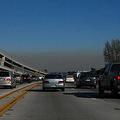 美國環保署長強森(Stephen Johnson)3月27日致函國會表示,在環保署開始規範造成氣候變遷的溫室氣體前,美國民眾有機會對此發表意見。
美國環保署長強森(Stephen Johnson)3月27日致函國會表示,在環保署開始規範造成氣候變遷的溫室氣體前,美國民眾有機會對此發表意見。
強森表示,環保署將考量氣候變遷的種種特殊效應,以及思考在「清淨空氣法案」(Clean Air Act)中對於固定性和移動性排放溫室氣體的可能規範,同時他將透過立法前的預先公告(Advance Notice of Proposed Rulemaking)來廣納各界意見。
2007年4月2日,美國聯邦最高法院在麻州與環保署的案件中,裁定聯邦單位必須決定溫室氣體的形成,是否會危害大眾健康與社會福祉,倘若真的造成危害,環保署應規範交通工具的廢氣排放。
「一份立法前的預先公告有其意義,」強森指出:「制定法規後,任何溫室氣體規範---即便只是針對汽車排放廢氣---都很有可能會影響其他固定性排放的規範,或是擴及到「清淨空氣法案」(Clean Air Act)中許多未曾規範的小型廢氣來源。」
民主黨國會議員無法接受這說法。參議院環境與公共利益委員會主席、加州參議員鮑克瑟(Barbara Boxer)表示,「近八年來,布希政府一直試圖推諉全球暖化問題。直到一年前,最高法院才裁定溫室氣體涵括在「清淨空氣法案」(Clean Air Act)中。此刻我們卻沒有採取行動,反而放慢腳步。」
 代表共和黨在白宮全球暖化與能源獨立特別委員會扮演要角的威斯康辛眾議員森森布蘭紐(Jim Sensenbrenner)認為,「清淨空氣法案」(Clean Air Act)不是規範全球暖化的正確方向。
代表共和黨在白宮全球暖化與能源獨立特別委員會扮演要角的威斯康辛眾議員森森布蘭紐(Jim Sensenbrenner)認為,「清淨空氣法案」(Clean Air Act)不是規範全球暖化的正確方向。
森森布蘭紐說:「全球暖化是一個複雜且微妙的議題,需要智慧且審慎規劃的解決方案;再者相關法案為減少溫室氣體的排放,勢必影響經濟發展,因此這些法令必須要在經濟面和政策面都兼具可行性。」
強森說:「許多請願、訴訟與法院給環保署訂下的最後期限,使這些議題顯得相當複雜。」
強森在他給國會的信裡提到:「這些議題包含了環保署對於麻州與環保署一案的回應,包含諸多移動性廢氣排放(包含海、陸、空)的請願,以及固定污染源的法規制定(石油提煉、矽酸鹽水泥、發電廠與工業鍋爐)。」
The public will have an opportunity to comment before the U.S. Environmental Protection Agency takes any action to regulate the greenhouse gases responsible for climate change, EPA chief Stephen Johnson told members of Congress in a letter on Thursday.
Johnson said he will solicit public input through an Advance Notice of Proposed Rulemaking as the agency considers the specific effects of climate change and potential regulation of greenhouse gas emissions from stationary and mobile sources under the Clean Air Act.
Last April 2, the U.S. Supreme Court ruled in Massachusetts v. EPA that the federal agency must determine whether heat-trapping emissions endanger public health or welfare, and if they do, that the EPA must regulate these emissions from motor vehicles.
An Advance Notice of Proposed Rulemaking "makes sense," Johnson wrote, "because, as the Act is structured, any regulation of greenhouse gases - even from mobile sources - could automatically result in other regulations applying to stationary sources and extend to small sources including many not previously regulated under the Clean Air Act."
Democrats in Congress were not persuaded. Senator Barbara Boxer of California, who chairs the Senate Committee on Environment and Public Works, said, "For nearly eight years, this Administration has tried to duck its obligation to address global warming pollution. A year ago, the Supreme Court ruled that greenhouse gases are covered under the Clean Air Act. Now, instead of action, we get more foot-dragging."
Congressman Jim Sensenbrenner of Wisconsin, who serves as ranking Republican on the House Select Committee on Energy Independence and Global Warming, says the Clean Air Act is not the right way to regulate global warming.
"Global warming is a complicated and nuanced topic that needs smart and carefully-devised solutions. And because the policies needed to achieve greenhouse gas reductions also stand to damage our economy, these policies must be both economically and politically feasible," said Sensenbrenner.
Johnson says the issues are complex especially in view of the many "petitions, lawsuits and court deadlines before the Agency."
"These include the Agency response to the Massachusetts v. EPA decision, several mobile source petitions (on-road, non-road, marine, and aviation), and several stationary source rulemakings (petroleum refineries, Portland cement, and power plant and industrial boilers)," Johnson wrote in his letter to Congress.
全文及圖片詳見:ENS



